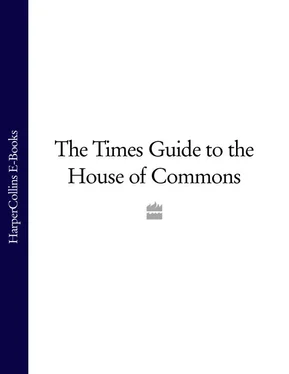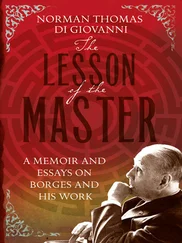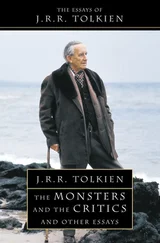Lord Ashcroft, Tory vice-chairman, businessman and philanthropist, had long been a Labour hate figure whose funding they blamed for losing their party a number of seats in 2005. He revelled in his pariah status. After receiving his peerage in 2000 from William Hague, then Tory leader, he attempted unsuccessfully to become Lord Ashcroft of Belize, reflecting his dual citizenship. He stopped donating to the Conservatives under his own name in November 2001, fuelling suggestions, which he never denied, that he was no longer on the electoral register and giving instead through a small company, Bearwood Corporate Services.
In 2009 the Electoral Commission began examining suggestions that millions given to the Tories by Bearwood originated in Belize, possibly making the donations against electoral law. The money was reported to have been moved from Stargate Holdings based at Lord Ashcroft’s bank in Belize City through two British holding companies and then to Bearwood Corporate Services. In a 15-month investigation, however, the watchdog was unable to discover what, if any, business the secretive Belize City-based Stargate conducted, and how it was financed. Lord Ashcroft was cleared.
He still ended up causing the party much embarrassment on the eve of the election, when it emerged that he had accepted his peerage on the understanding that he would pay full tax in Britain, only to remain secretly non-domiciled for tax purposes for a decade. This allowed him to save an estimated “tens of millions” of pounds of British tax on his overseas earnings while retaining his ermine.
Yet for all the fury directed at Lord Ashcroft, it is not clear that the marginal seats campaign he ran once he became the Conservatives’ deputy chairman had the impact that many Conservatives had hoped for. His blueprint, outlined in a 2006 pamphlet Smell the Coffee, involved early candidate selection, relentless leaf-leting, repeated canvassing, candidate performance polling and targeted advertising as the key to winning marginal seats. Constituencies such as Hammersmith, Cheltenham and Bolton followed to the letter the Ashcroft plan yet all remained in Labour or Liberal Democrat hands. Indeed, research suggests that the spending advantage in the marginal seats helped the Tories to win at most an additional 14 seats above those that would have fallen anyway on the 5 per cent Labour to Tory swing.
Much analysis on the 2010 general election is yet to be done but the early indications suggest that it was one where, refreshingly, big money still failed to have a decisive impact on the result.
Little joy for the smaller parties
Jill Sherman
Whitehall Editor
The election of the Green Party’s first MP as dawn broke on May 7, 2010 was one of the highlights of a long, unpredictable night. Caroline Lucas’s breakthrough in Brighton Pavilion was some compensation for an otherwise disappointing result for the minority parties, who failed to exploit the disaffection with mainstream politics. Dr Lucas, leader of the Green Party since 2008, capitalised on her own popularity and activists’ hard work for years in southern England to achieve, finally, a foothold at Westminster.
In the final stages of post-election negotiations between the parties after the inconclusive result, Dr Lucas, an MEP for the South East since 1999, briefly found herself being counted as part of a “progressive alliance” as the arithmetic meant that every additional seat was crucial. The plans fell apart but Dr Lucas turned her suitors down anyway, saying that she was interested in cooperation but not a formal coalition.
The Greens made their biggest push in a general election by fielding 335 candidates and spending £400,000 on their campaign. They had particularly high hopes in three target seats: Brighton Pavilion, Norwich South, and Lewisham Deptford. By early morning the day after the election, however, it became clear that Dr Lucas, a charismatic former CND-protester, was the only victor and the party’s overall share of the vote fell slightly by 0.1 per cent from 2005.
The party argues that the decline was a result of a highly targeted election campaign in which it pooled most of its resources into those key seats, with busloads of Green activists brought in to campaign along the seafront each weekend. In the end, the tactic was vindicated, but it was a close race: despite being favourites to win the seat, after a nail-biting count the Greens eventually won with 1,252 votes.
While disappointing for Adrian Ramsay, the party’s deputy leader, who lost in Norwich South, and Darren Johnson, who failed to make much headway in Lewisham Deptford, the most important thing for the party, was winning its first seat. As Dr Lucas said in an interview with The Times , she hopes she won’t be there on her own for too long.
Most of the minority parties failed to recapture their success in the European elections the previous year. In 2010, squeezed out of the running by the three-horse race of the main parties, the smaller ones retained their 14 Westminster seats but took a smaller overall share of the vote, 11.9 per cent, than the previous year. It was, however, up 1.6 per cent from the general election in 2005, mainly because the parties fielded more candidates. The results were particularly disappointing because many of the smaller parties had looked likely to benefit more from the backlash against the main parties over MPs’ expenses the previous year. The scandal may have stopped people voting for those individuals who had been at the centre of the expenses storm but in the end the minority parties failed to reap what should have been easy pickings.
The UK Independence Party, which had seen its popularity soar during the European elections, in which it took second place and 16.5 per cent of the vote, again failed to win a Commons seat. At one stage it looked as if Nigel Farage, the party’s former leader, could be out of the race altogether when a light aircraft in which he was being flown crashed on the eve of the election. He was fortunate to escape without serious injury but was unable to oust John Bercow, the Commons Speaker, in Buckingham.
The British National Party also failed to make the breakthrough that many had feared after the party’s shock success in 2009 when it won two European seats. It did, however, increase its share of the vote by a whisker, from 1.2 per cent in 2005 to 1.9 per cent. Nick Griffin, the party chairman and an MEP, raised his profile after appearing on Question Time on BBC One in autumn 2009, when he faced a barrage of criticism from other panellists. He was humiliated in the general election in Barking, where he stood against Margaret Hodge, the Labour incumbent, who increased her majority.
The BNP also targeted Stoke-on-Trent, where it had previously won a clutch of council seats, but Simon Darby the party’s deputy chairman, was beaten into fourth place after Tristram Hunt, the Labour candidate parachuted into the constituency, won the seat.
George Galloway, the leader of the anti-war Respect party, also had his comeuppance. The colourful Mr Galloway, who made an embarrassing appearance on Celebrity Big Brother , failed to hang on in Poplar & Limehouse, East London, where he came third behind Labour and the Tories. He did not even turn up for his count. Respect’s national share of the vote halved from 2005 to about 0.1 per cent mainly because the Iraq war was no longer a big central issue in the 2010 election.
The march of the independent MPs also came to a halt. In 2005 a record number stood and total votes cast for them reached 141,903. The betting money was on a further surge this year, with a predicted revolt against duck houses and flipped homes. But in the end it was the independents who were driven off the Commons green benches. Richard Taylor, the retired consultant who took Wyre Forest in 2001 on the back of a single-issue campaign to save his local hospital in Kidderminster, failed to retain his seat in 2010. Dr Taylor, who in his professional life wore a white coat, had taken the place of the white-suited Martin Bell, the former independent MP who seized Tatton on the back of the cash-for-favours scandal in 1997.
Читать дальше












